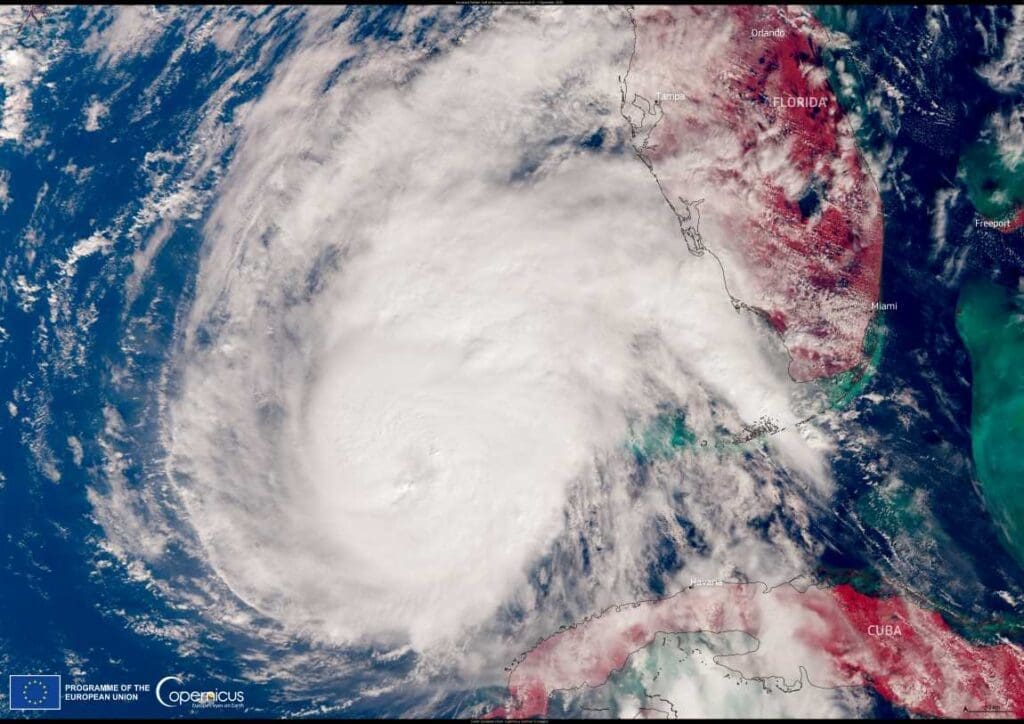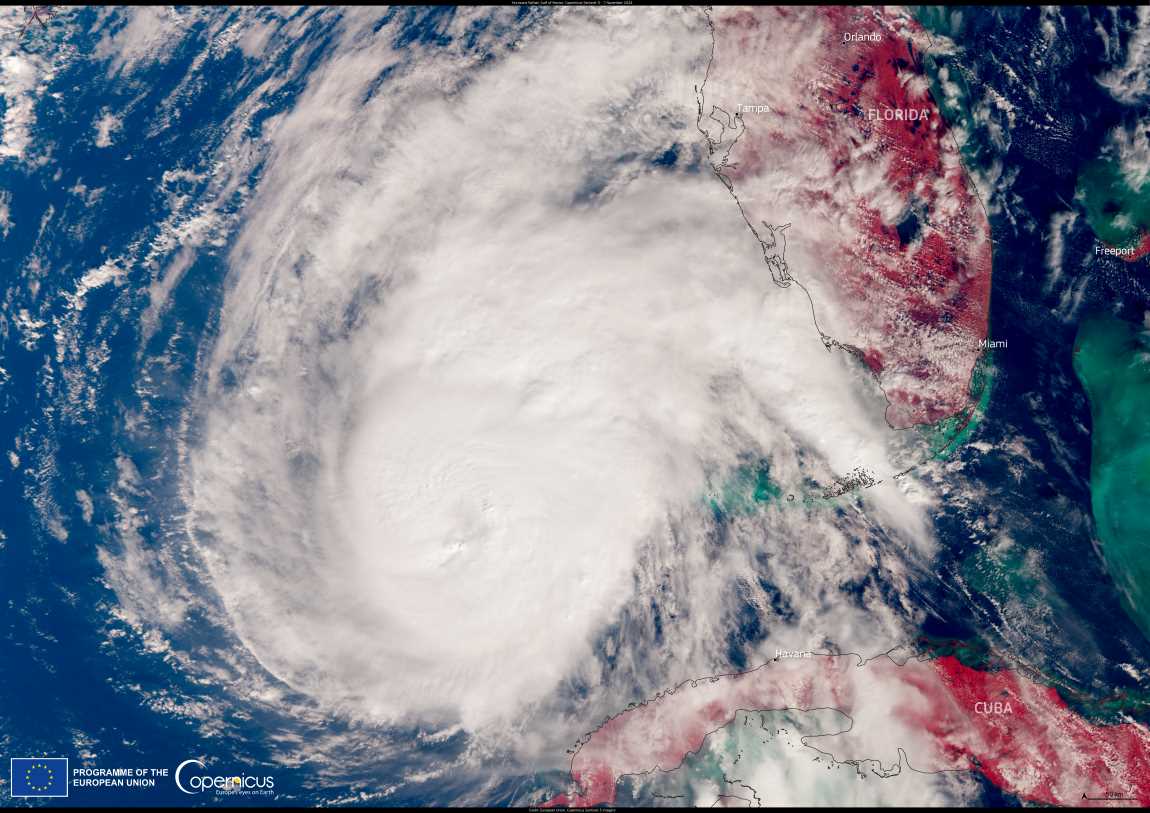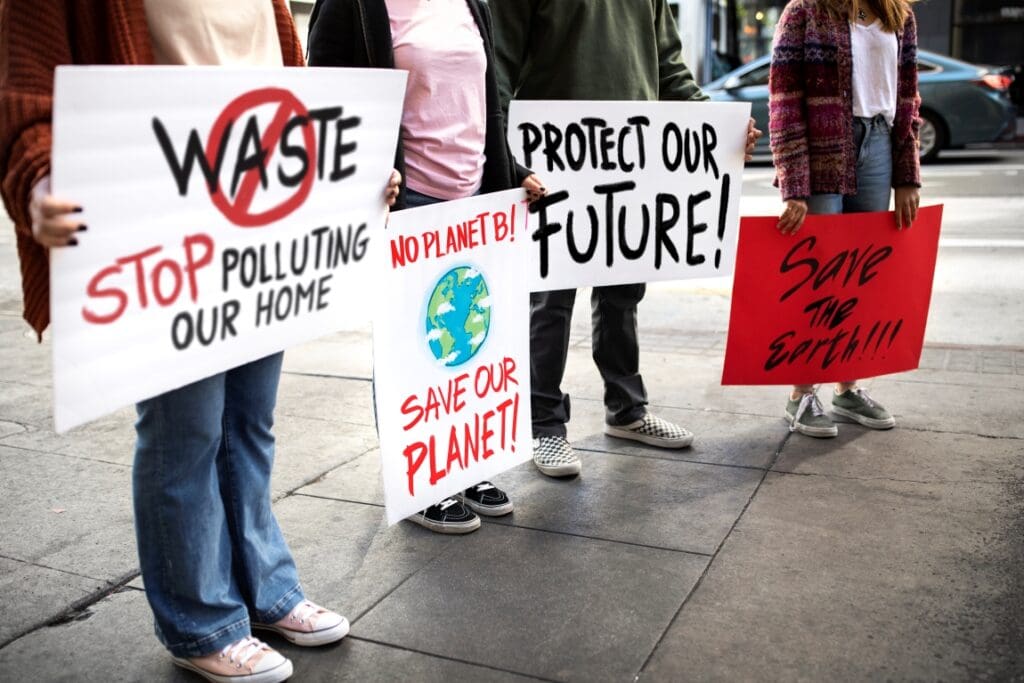In early November 2024, Hurricane Rafael, visible in this Copernicus Sentine-3 image acquired on 7 November 2024, made landfall in Cuba as a Category 3 storm, destroying hundreds of homes and other infrastructure and causing island-wide power outages.

Over 283,000 people have been evacuated, including nearly 100,000 people in Havana. Rafael, which is the strongest hurricane in the northwestern Caribbean in November since 2009, is the second powerful hurricane to hit Cuba in recent weeks, following Hurricane Oscar in October 2024.
Amid increasingly frequent and intense tropical storms and hurricanes driven by climate change, the Copernicus Sentinel satellites deliver open data which supports the monitoring and understanding of these extreme weather events.
Featured image credit: European Union, Copernicus Sentinel-3 imagery




